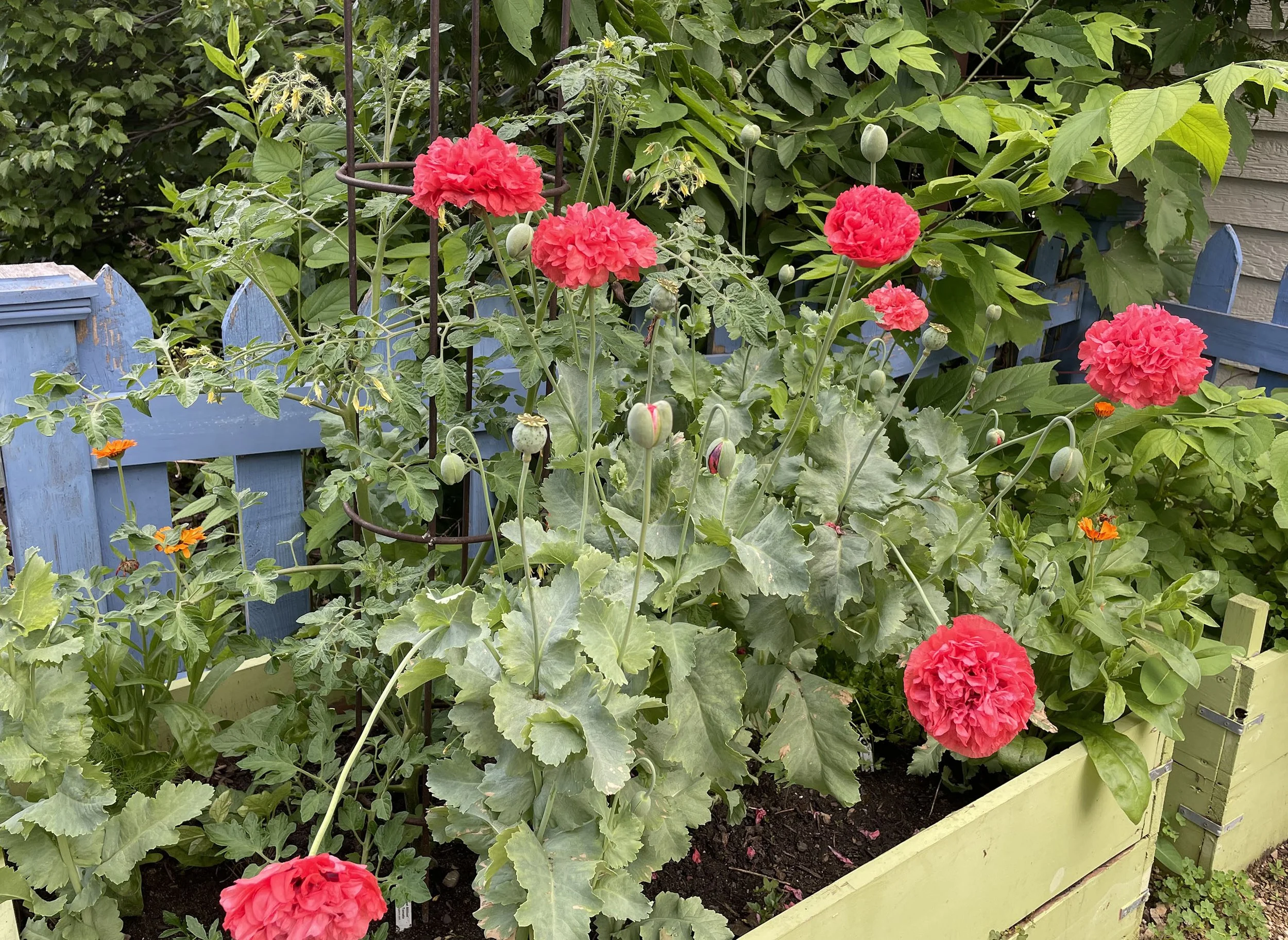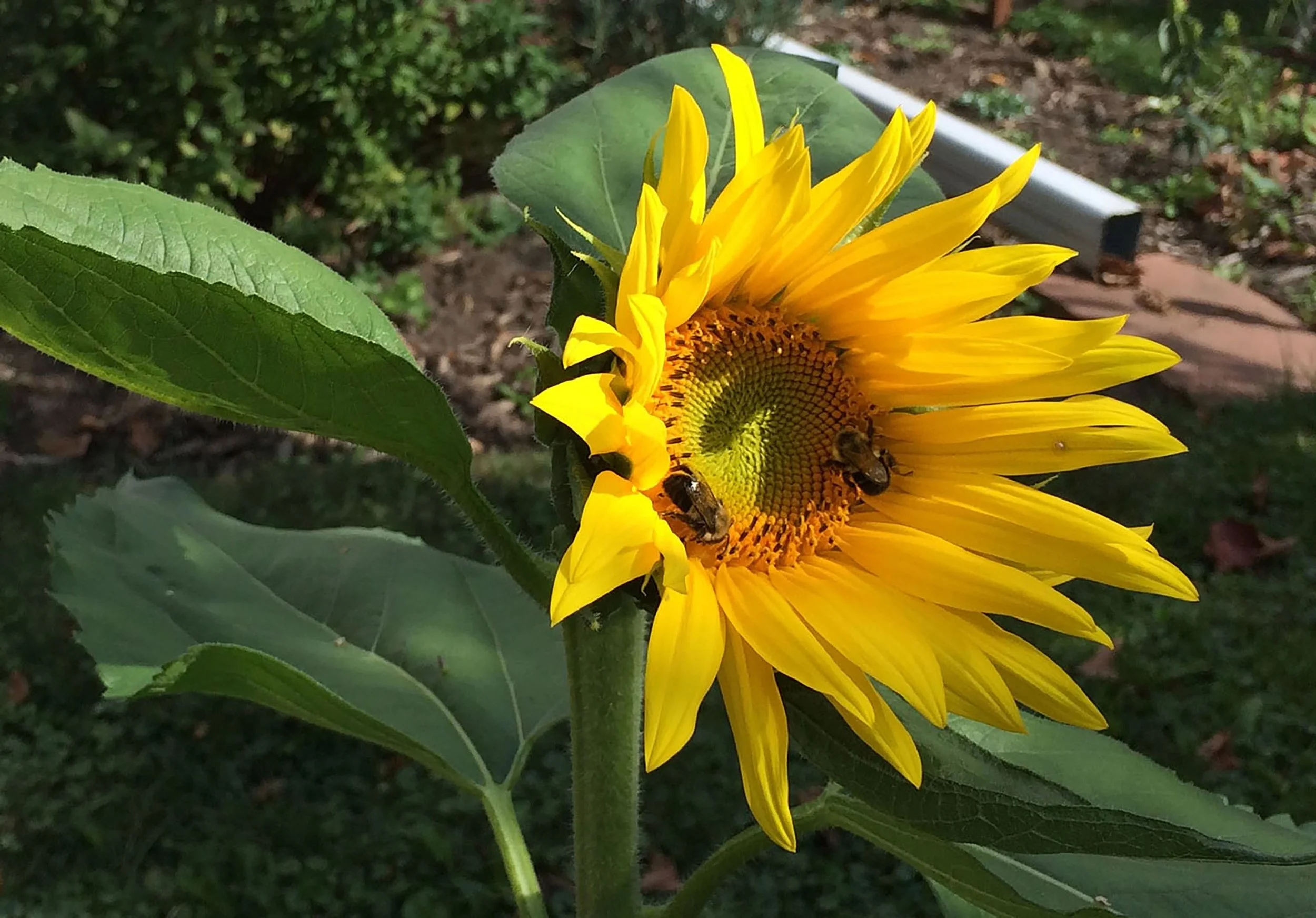Garden Plans Must Adapt to Uninvited Guests
The breadseed poppies are garden-party crashers—they show up uninvited, don frilly party dresses, mingle somewhat aggressively, and would completely overrun the place if I’d let them.
In truth, it would not be too difficult to stop them from coming back next year if I just cut off the spent blossoms and didn't allow them to go to seed. But I do enjoy their cheerful flowers and quirky seedheads, and so I let them stay, sometimes adjusting my garden layout to accommodate them. For example, the garden box in the above photo was going to house three tomato plants, but when I saw all the poppy volunteers, I realized there was only room for one, so I placed the other two tomatoes in two different boxes, each with their own mix of flowers and herbs.
One summer, I was going to plant pole beans, but first I needed to find some poles. Meanwhile, I noticed birds poking about in the bare soil and thought they must be finding bugs and weed seeds to eat—how convenient.
But a week or so later, sunflowers sprouted where the birds had been pecking. Our bird feeder was about 15 feet from the spot, and we would often find sunflowers growing just under it, but I didn’t expect the birds to bring seeds to the garden and plant them there.
I thought about planting the beans anyway and letting them climb up the sunflower stems, but bean vines can get pretty heavy, and I didn’t want to topple the sunflowers, so I just resigned myself to growing sunflowers instead. Beans are cheap at the farmers’ market when I would be picking them, and the sunflowers are such a delight in the middle of the garden.
When the sunflowers opened, I noticed bees enjoying the fruits (that is, pollen) of the birds’ efforts. And, of course, the bees are simply returning the favor, since they will pollinate the flowers to help them make seeds for the birds. I’m happy to just be a spectator to it all.
This isn’t the first time I have enjoyed serendipitous sunflowers in my garden. I remember a tall gangly specimen that sprouted in a flower bed, towering over the perennials like a May Day parade puppet. Eventually, the flowers became seedheads, nodding heavily. Chickadees delighted in the feast, making a lively scene as they hovered, fluttering their wings wildly, to pluck a seed and then land in a nearby tree branch to peck it open and eat it.
Have you ever walked past a lawn spotted with small clumps of daisies, apparently allowed to flower by someone who took the trouble to mow around them? My mother used to do that, and I’ve since noticed that quite a few others must have a soft spot for the cheery blossoms that plant themselves where they wish.
A little adjustment in exchange for a bit of delight. Who wants to spend any of our fleeting summertime fighting serendipity?

